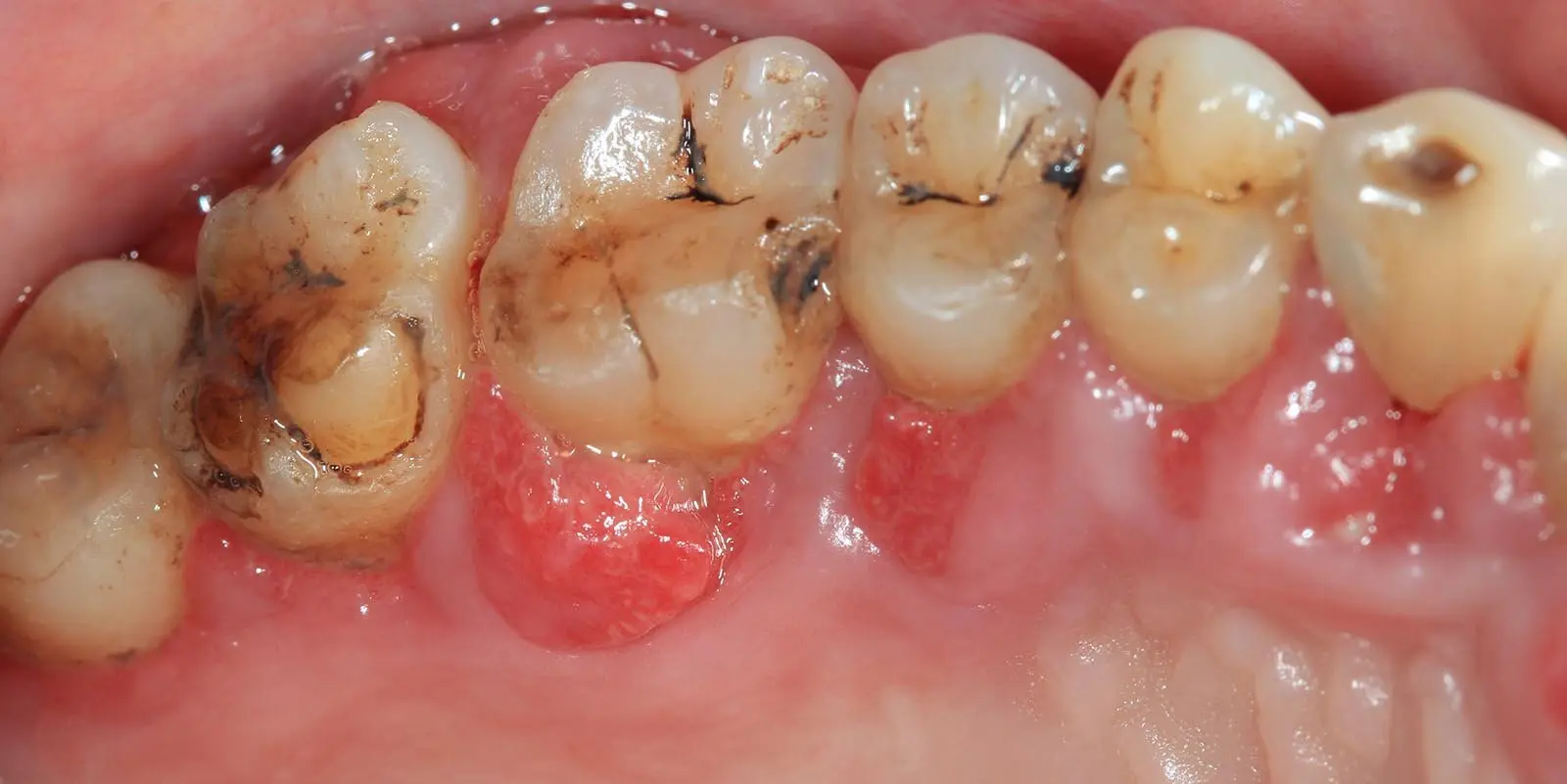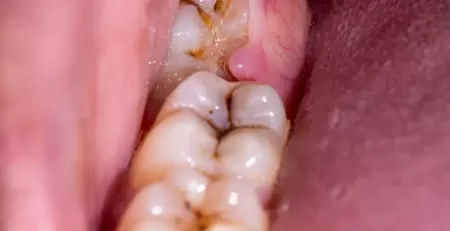Why do my gums bleed, and should I be worried?
Bleeding gums should not be a common everyday occurrence. However, simple actions such as vigorous incorrect brushing or flossing techniques may provoke gums to bleed. At times, there is no need to panic. Unfortunately, there are times when more severe oral or health issues can cause gum bleeding.
Understanding the leading causes of your bleeding gums can help treat, manage and cure your condition.
If you’re suffering from consistent and unusual bleeding gums, you must visit your nearest dentist for a proper examination to determine the potential causes. General dentists are the first “line of defence” against tooth decay and gum disease. Accordingly, dentists can extensively examine your oral health status using special instruments and X-rays to determine if your bleeding gums are severe.
Bleeding gums and your health
Oral health issues like bleeding gums do not always relate to gum disease or tooth decay. Underlying medical conditions might also cause gum bleeding, requiring another health specialist for proper diagnosis and treatment.
If you believe you’re experiencing unique gum bleeding, seeking medical advice for a different opinion is optional after visiting a dentist. When visiting your dentist, you must be transparent and honest regarding your oral health and medical condition, since they may advise you to see a medical practitioner or specialist.
Oral conditions that can cause bleeding gums
Plaque
Plaque build-up is the accumulation of food debris and harmful bacteria in the mouth. Plaque accumulates and hardens to form Tartar (Calculus), which usually occurs at the base of the tooth.
Gingivitis
The initial phase of gum disease is gingivitis, reversible when treated by a dentist.
It’s important to note that gingivitis is the leading cause of bleeding gums and is the most common form of gum disease that individuals experience.
Gingivitis may cause swelling and bleeding during brushing. Since periodontal disease is early and mild during this stage, general dentists can help treat patients with gingivitis.
Periodontitis

Periodontitis is the following stage when gingivitis is left untreated.
Unfortunately, this stage of periodontal disease, which affects gum, supportive tissue and jawbone, is irreversible. Consequently, severe infection and inflammation from periodontal disease can result in tooth loss.
Periodontitis is the primary cause of tooth loss.
Skilled general dentists can treat periodontal disease with deep cleaning, scaling and root planing. Although for advanced and severe cases, a general dentist may refer you to a periodontist expert.
Hormones and Oral Health
Research has found that teeth and gum conditions are related to hormonal changes in women’s menstrual cycles and menopause. Pregnant women may have inflamed gums. A condition referred to as Pregnancy Gingivitis.
Vitamin Deficiency
Vitamins are critical for your body to perform vital functions.
- Vitamin C helps our bodies repair. It heals wounds and strengthens bones and teeth.
- Vitamin K is essential for healthy bones. Vitamin K is a protein that works with Vitamin D to move calcium throughout your bloodstream and into your teeth and bones. As a result, it plays a critical role in blood clotting and your jawbone health.
Foods containing high Vitamin C include:
- Citrus (oranges, kiwi, lemon, grapefruit)
- Bell peppers
- Strawberries
- Tomatoes
- Cruciferous vegetables (broccoli, Brussels sprouts, cabbage, cauliflower)
- White potatoes
Foods containing high Vitamin K include:
- Kale
- Collard greens
- Spinach
- Turnip greens
- Brussels sprouts
- Broccoli
- Asparagus
- Lettuce
- Sauerkraut
- Soybeans
- Edamame
- Pickles
- Pumpkin
- Pine nuts
- Blueberries
Medical Health Conditions
The below are not conclusive factors behind all bleeding gums. Medical professionals utilise extensive procedures and protocols to diagnose patients adequately. Therefore, the information below should not be referred to for definitive self-diagnosis. The following conditions reiterate the importance of visiting a dentist close to you for an oral examination or even your GP for a general health check-up.
Upon visiting your dentist, dentists require all patients to complete a medical history and openly discuss medical conditions that may affect their dental hygiene and medications. A medical health professional will be necessary to diagnose, manage and help treat these conditions:
- Diabetes, gum inflammation and bleeding gums can be warning signs of diabetes. Diabetes weakens your mouth’s natural ability to fight germs. High blood sugar levels that accompany those with diabetes undermine the body’s overall immune system, therefore worsening gum disease and other oral health conditions. Consequently, this may leave you vulnerable to infections and gum disease.
- Leukemia is a cancer of the blood that causes an increase in white blood cells in the body. As a result, the white blood cells overpopulate red blood cells. Therefore, leukemia causes unusual bleeding in areas such as the nose and gums. Particular classes of leukemia, such as acute myeloid leukemia, can provoke gum inflammation and swelling that makes gums susceptible to bleeding during brushing and flossing. Irregular and unusual bleeding in different body parts can be early signs of cancer.
- Thrombocytopenia is when you do not have enough Platelets or Thrombocytes in your blood to form a clot to help ease and eventually prevent bleeding. If you have Thrombocytes, the platelets in your blood can’t materialise into a blood clot, resulting in excess bleeding in different parts of your body, including your gums.
- Hemophilia, similar to Thrombocytopenia, causes blood not to clot correctly, leading to prolonged gum bleeding. Hemophilia refers to a class of inherited disorders that cause unusual bleeding.
- Patients taking certain medications, such as blood thinners, aspirin, or ibuprofen, may experience irregularities with their oral bleeding since thinners help prevent blood clots. As a result, when bleeding occurs, it may take longer for it to stop due to the thinning blood medication. When visiting your closest dentist, it’s critical to inform them of your medicines during any appointment so that they can provide the treatment and recommendations necessary for the best outcome.
How to Stop Bleeding Gums

- Proper oral hygiene routine at home
- Brush twice a day
- Floss your teeth regularly
- Mouthwash
- Regular dental visits for check-ups and cleans; Early diagnosis is the best treatment for tooth ailments or gum disease. When dentists identify and treat conditions early, this helps prevent any severe issues from occurring. Your closest dentist will provide referral details if an external oral specialist is required.
- Avoid Tobacco and other forms of smoking.
- Eating and drinking healthy, A well-balanced diet will allow you to absorb nutrients and minerals for your teeth and gums.
- Reduce stress and improve your mental well-being; high stress and anxiety levels raise your stress hormone cortisol levels, which can cause inflammation throughout your body, including your gums.
- Book an appointment for dental treatment for gum disease to help stop gum bleeding.
Disclaimer: The information provided in this blog is for general educational purposes only and should not be considered professional dental advice. Always seek the guidance of a qualified dental practitioner regarding your specific oral health needs. No treatment is provided or recommended through this content. For personalised care, please contact Amazing Smiles to book a consultation.




